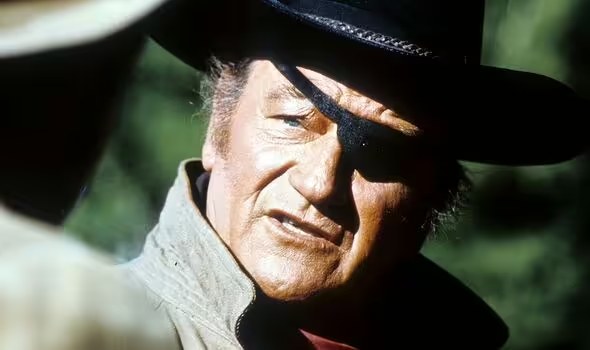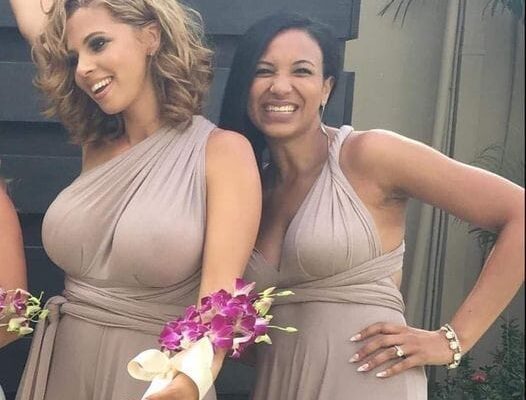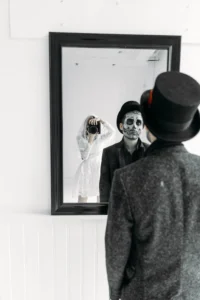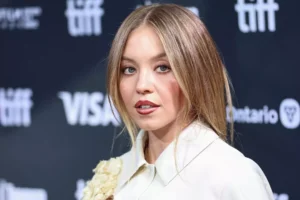John Wayne actually found himself having to explain why his character of Rooster Cogburn was so different from many of his classic roles, eve apparently breaking his own deeply held moral code.
Although The Duke himself admitted to many other reservations about the movie, it did what no other could in his extraordinary career.The following year, the 63-year-old picked up his first Best Actor award at the Academy Awards for the film.Accepting the golden statuette, he joked: “Wow, if I’d have known that, I’d have put that patch on 35 years earlier.” John Wayne in True Grit with eye patch (Image: GETTY )
John Wayne in True Grit with eye patch (Image: GETTY )
The experience left him unusually self-deprecating and he even whispered in Barbra Streisand’s ear as she handed him the Oscar, saying: “Beginner’s luck.”Many then and now have also commented that, as so often happens at the Oscars, the award was a form of career recognition. It certainly was not among Wayne own favourite performances or films.Indeed, at the ceremony, he also privately approached fellow nominee Richard Burton and told the Welsh actor he should have won for his portrayal of King Henry VIII in Anne of the Thousand Days instead of him.
 John Wayne with his Oscar for True Grit with Barbra Streisand (Image: GETTY)
John Wayne with his Oscar for True Grit with Barbra Streisand (Image: GETTY)
Many of Wayne’s issues with the film were more about other people, with the legendary star unimpressed with the performances of Kim Darby as the young Mattie Ross and country singer Glen Campbell as La Boeuf.The latter role had originally been offered to Elvis Presley, but his manager was unhappy with numerous issues, not least anything less than top billing, and negotiations fell apart.Wayne, though as always, applied himself to his own work and turned in a nuanced performance of a character who seemed to break the star’s career-long personal beliefs.So, how did he explain playing a role as morally dubious as Rooster Cogburn? John Wayne in True Grit (Image: GETTY)
John Wayne in True Grit (Image: GETTY)
Even though the ageing and embittered US Marshall ultimately becomes a darkly heroic character, Wayne recognised that Rooster was not a classic hero or morally cut and dried.La Boeuf is the clean-cut upholder of the law, while Rooster believes that in his form of justice, the end justifies any means – usually at the end of a bullet.Wayne said: “In spite of the fact that Rooster Cogburn would shoot a fella between the eyes, he’d judge that fella before he did it. He was merely trying to make the area in which he was marshal liveable for the most number of people.”
 Glen Cambell with John Wayne on set for True Grit (Image: GETTY)
Glen Cambell with John Wayne on set for True Grit (Image: GETTY)
Wayne was a life-long conservative, personally, politically and professionally. He viewed the American West as a sacred subject and frequently denounced those who he believed betrayed its essence.The star made sure his characters lived by a firm moral code and, for example, never shot a man in the back.
John Wayne ‘broke’ his deepest code on the film that finally won him an Oscar – and then told a `Hollywood rival they should have won instead.
By STEFAN KYRIAZIS21:10, Sun, Aug 20, 2023 | UPDATED: 21:13, Sun, Aug 20, 2023
BOOKMARK
True Grit: John Wayne stars in 1969 trailer
0 seconds of 3 minutes, 33 secondsVolume 0%
Across this weekend in 1963, True Grit was released through many European countries, although the UK would have to wait until the prestigious Boxing Day release slot.John Wayne actually found himself having to explain why his character of Rooster Cogburn was so different from many of his classic roles, eve apparently breaking his own deeply held moral code.
Although The Duke himself admitted to many other reservations about the movie, it did what no other could in his extraordinary career.The following year, the 63-year-old picked up his first Best Actor award at the Academy Awards for the film.Accepting the golden statuette, he joked: “Wow, if I’d have known that, I’d have put that patch on 35 years earlier.”
Read more… John Wayne was left speechless at Maureen O’Hara’s forbidden unscripted lines [LATEST]
 John Wayne in True Grit with eye patch (Image: GETTY )
John Wayne in True Grit with eye patch (Image: GETTY )
The experience left him unusually self-deprecating and he even whispered in Barbra Streisand’s ear as she handed him the Oscar, saying: “Beginner’s luck.”Many then and now have also commented that, as so often happens at the Oscars, the award was a form of career recognition. It certainly was not among Wayne own favourite performances or films.Indeed, at the ceremony, he also privately approached fellow nominee Richard Burton and told the Welsh actor he should have won for his portrayal of King Henry VIII in Anne of the Thousand Days instead of him.
 John Wayne with his Oscar for True Grit with Barbra Streisand (Image: GETTY)
John Wayne with his Oscar for True Grit with Barbra Streisand (Image: GETTY)
Many of Wayne’s issues with the film were more about other people, with the legendary star unimpressed with the performances of Kim Darby as the young Mattie Ross and country singer Glen Campbell as La Boeuf.The latter role had originally been offered to Elvis Presley, but his manager was unhappy with numerous issues, not least anything less than top billing, and negotiations fell apart.Wayne, though as always, applied himself to his own work and turned in a nuanced performance of a character who seemed to break the star’s career-long personal beliefs.So, how did he explain playing a role as morally dubious as Rooster Cogburn?
 John Wayne in True Grit (Image: GETTY)
John Wayne in True Grit (Image: GETTY)
Even though the ageing and embittered US Marshall ultimately becomes a darkly heroic character, Wayne recognised that Rooster was not a classic hero or morally cut and dried.La Boeuf is the clean-cut upholder of the law, while Rooster believes that in his form of justice, the end justifies any means – usually at the end of a bullet.Wayne said: “In spite of the fact that Rooster Cogburn would shoot a fella between the eyes, he’d judge that fella before he did it. He was merely trying to make the area in which he was marshal liveable for the most number of people.”
 Glen Cambell with John Wayne on set for True Grit (Image: GETTY)
Glen Cambell with John Wayne on set for True Grit (Image: GETTY)
Wayne was a life-long conservative, personally, politically and professionally. He viewed the American West as a sacred subject and frequently denounced those who he believed betrayed its essence.The star made sure his characters lived by a firm moral code and, for example, never shot a man in the back.
The Duke blasted the ending of iconic Western High Noon as “the most un-American thing I’ve ever seen in my whole life,” and wrote a letter to Clint Eastwood attacking his movie High Plains Drifter.
According to Randy Roberts’ John Wayne: American: “[Duke] stepped out, laughed uproariously at first, and then settled down into a teary-eyed smile. Everybody, horses included, was sporting an eye patch, and the crowd was clapping and whistling congratulations to the best actor in the world.”No doubt this was a special moment for the star, who aside from his own health problems had lost his mother during the filming of Rio Lobo and then his brother Robert E Morrison just a month after the wrap.


 Entertainment1 year ago
Entertainment1 year ago
 Entertainment1 year ago
Entertainment1 year ago
 Entertainment1 year ago
Entertainment1 year ago
 Entertainment1 year ago
Entertainment1 year ago
 Entertainment1 year ago
Entertainment1 year ago
 Entertainment1 year ago
Entertainment1 year ago
 Entertainment1 year ago
Entertainment1 year ago
 Entertainment1 year ago
Entertainment1 year ago
 John Wayne in True Grit with eye patch (Image: GETTY )
John Wayne in True Grit with eye patch (Image: GETTY ) John Wayne with his Oscar for True Grit with Barbra Streisand (Image: GETTY)
John Wayne with his Oscar for True Grit with Barbra Streisand (Image: GETTY) John Wayne in True Grit (Image: GETTY)
John Wayne in True Grit (Image: GETTY) Glen Cambell with John Wayne on set for True Grit (Image: GETTY)
Glen Cambell with John Wayne on set for True Grit (Image: GETTY)







